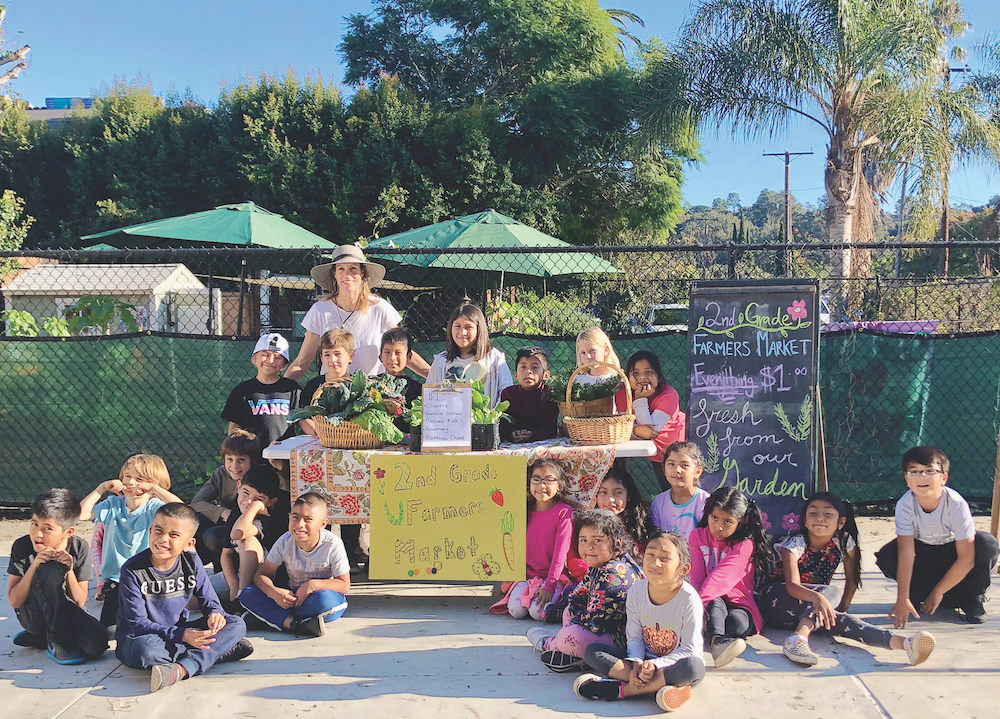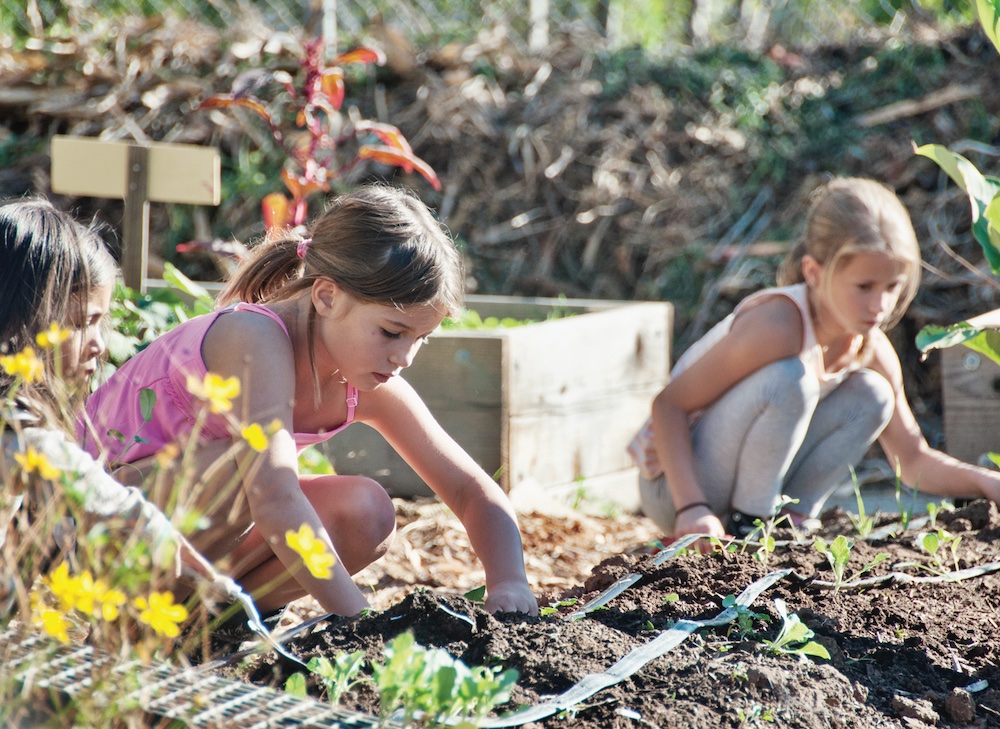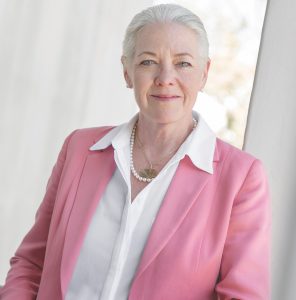School Gardens Help Children Grow

It’s a typical school day and time for an Explore Ecology garden class. Children line up to head outside. When they enter the garden, their excitement is palpable. Students notice that the flowers they planted from seed are now being visited by butterflies, bees, and hummingbirds. They harvest ripe fruits and vegetables and try new foods like kale, parsley, and passion fruit. When the compost bin is opened, there is always a collective gasp of wonder as students see firsthand the bustling world inside. In school gardens, science comes alive!
Approximately 14,000 elementary and junior high school students benefit from this program that brings students outside into nature as part of their school day. Explore Ecology School Gardens are found in over 30 schools throughout the county. Trained Explore Ecology Garden Educators guide eager young learners through the processes of planting, composting, and maintaining an organic garden. Students have so much fun outside, they hardly even know they’re practicing their skills in math, science, and language arts.

Produce is harvested regularly and provides students opportunities to taste new food that they grow themselves. Extra produce goes to the cafeteria and occasionally to the school community.
“Time in the garden is many students’ favorite part of their day,” says Lindsay Johnson, Explore Ecology’s Executive Director. “When I visit school gardens I’m reminded of the importance of our work and instantly have renewed hope for the future of our children and the planet. The garden offers common ground for children to connect with each other while exploring the natural environment and allowing their imaginations to soar!”
Closed-loop systems like vermicomposting, also known as worm composting, are an important part of the program. Green waste and food scraps from the cafeteria and garden are fed to worms and other decomposers and transformed into a rich soil amendment, which is returned to the garden beds to grow nutritious food. These large-scale vermicompost bins reduce waste and are a valuable teaching tool for experiential learning.
Explore Ecology is a leading environmental education nonprofit in Santa Barbara County, providing a wide array of programs to over 40,000 children and adults annually. Programs include the Art From Scrap Creative Reuse Store, Environmental Education, the Watershed Resource Center at Arroyo Burro Beach, and the School Gardens Program.
Explore Ecology
www.exploreecology.org
(805) 884-0459 ext. 4
Executive Director: Lindsay Johnson
Mission
The mission of Explore Ecology is to promote a greater understanding of the connections between people and their environment and to encourage creative thinking through hands-on environmental education and artistic expression. We empower our community to protect and preserve the environment through environmental education and creative exploration.
Begin to Build a Relationship
We know you care about where your money goes and how it is used. Connect with this organization’s leadership in order to begin to build this important relationship. Your email will be sent directly to this organization’s director of development and/or Executive Director.
What sets Explore Ecology apart is its dedication to hands-on participation. Students see presentations and read about the environment. With our programs, they’re actually going to the beach to learn about watersheds, or creating art with reuse materials, or checking on a plant that they grew. That’s what gets them super excited and engaged.
Help Plant the Seeds of Change
$50 – Cultivate Young Minds: Provide a year of school garden education for one child.
$250 – Fuel Field Trips: Sponsor a school bus for 60 students to take an Explore Ecology field trip and explore the wonders of nature firsthand.
$500 – Nurture Creativity: Fund five local artists to teach Makerspace art workshops.
$1,000 – Clean Our Coast: Sponsor a beach cleanup event, making our beaches safer and cleaner.
$2,500 – Equip Our Educators: Help purchase education materials for the Watershed Resource Center where students and the public learn about keeping our water clean!
Key Supporters
American Riviera Bank
Audacious Foundation
Brighten Solar
Coastal Fund at UCSB
Deckers Brands
Garden Club of Santa Barbara
Johnson Ohana Foundation
McGowan Guntermann
Mission Wealth
Montecito Bank & Trust
Natalie Orfalea Foundation
Rotary Club of Santa Barbara
Sunrise Charitable Foundation
Santa Barbara City College
Foundation
Santa Barbara Foundation
Santa Ynez Band
of Chumash Indians
Michel Saint-Sulpice
Teachers’ Fund
Village Properties
The Miller Family Fund
Tisha Weber Ford
Towbes Foundation
Laura and Geof Wyatt
Yardi Systems


